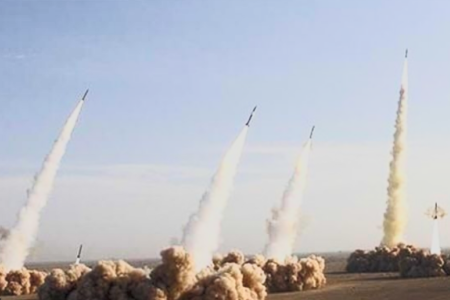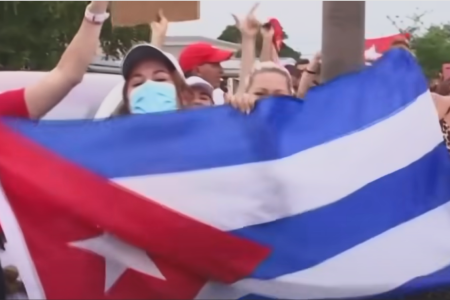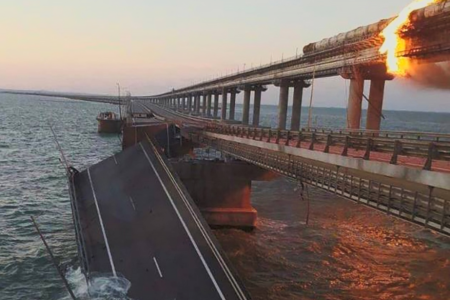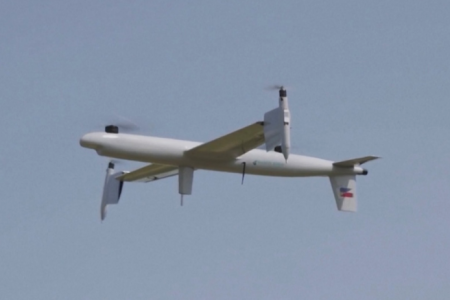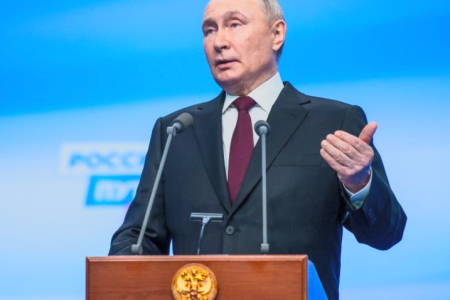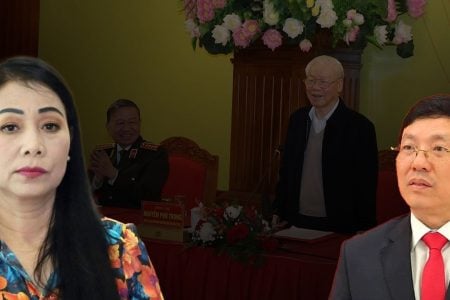
The three powers of the United States, the United Kingdom and Australia on September 15 announced the establishment of an alliance called AUKUS. To learn about the impact of this alliance on Southeast Asia, disputes in the South China Sea (Vietnam calls it the East Sea), and Vietnam, VOA has an interview with Master Hoang Viet, a researcher on the East Sea and a current lecturer in international law in Ho Chi Minh City. Below is the full text of the interview.
AUKUS proves the US does not abandon its ally
VOA: The announcement of the alliance by the three countries is considered a surprise to the world. Why do they have jobs so suddenly?
Master Hoang Viet: The fact that on September 15th, three countries launched the AUKUS agreement, shocked the world. Other countries, including many countries close to those AUKUS countries such as France, the EU, or Indonesia neighboring Australia, did not know the information, so it created a shock in the world.
The timing of the AUKUS declaration has many implications. The first implication, after about a month when the US officially withdrew its troops from Afghanistan, many countries feared that the US would abandon its allies and partners, especially in the Asian region. The fact that three countries announced AUKUS proves the opposite. That is, the US does not abandon its allies.
In addition, this is also a special time because Britain, after withdrawing from the European Union (EU), has initiatives that want to develop its role more. In British public opinion, many people criticized that the US had abandoned Britain’s role, not respecting Britain anymore.
As for Australia, recently Australia has suffered a lot of sanctions from China and many other hostile acts, so Australia feels very tense. Many also believe that the US does not pay enough attention to Australia.
Therefore, the establishment of the AUKUS alliance by the three countries clearly reaffirms that the US and its allies still have a very strong relationship, and once again affirms that the US is focusing on the Indian-Pacific Oceans.
The goal of containing China?
VOA: Although this alliance does not claim to target China, how do you think this group will target and take action towards China?
Master Hoang Viet: In the statements of the three leaders of the countries in AUKUS on the founding day, there was no mention of China. Even US President Biden’s latest speech before the United Nations General Assembly did not mention China. But in the statements of AUKUS leaders and Mr. Biden, we all see the shadow of China in them.
After all, the US is focusing on the Indo-Pacific. The US makes no secret that it must prevent actions, especially changes to the rules-based international order. This order was established by the United States and Western countries after World War II.
Currently, an emerging country in Asia, China, wants to redraw the order and change international law, especially China’s actions related to the South China Sea. China gives Chinese interpretations of the law of the sea. Even recently China has introduced a series of Chinese laws that, according to experts, contain provisions that violate international law, including the UN Convention on the Law of the Sea.
So, after all, this AUKUS alliance was born with the most important goal of curbing threats from China.
Vietnamese people generally support AUKUS
VOA: To go into specific steps, what will the three AUKUS countries do and how do they relate to countries in the region, especially Vietnam?
Master Hoang Viet: It is known that in the AUKUS agreement, there are contents such as cyberinformation exchange, quantum technology issues, and especially public interest in the fact that the US side will transfer a series of nuclear submarines.
Of course, the US and Australia make it clear that these are nuclear powered submarines, not nuclear weapons. The US, UK and Australia are all members of the Nuclear Non-Proliferation Treaty.
In the statement, the three countries said they would deliver to Australia eight nuclear-powered submarines. Australia says these nuclear-powered submarines will last longer, about two months underwater, not to mention further, to the South China Sea.
Some people think this is how the AUKUS countries are circumventing the law. The US not only sells nuclear-powered submarines, but also transfers this nuclear technology to Australia.
It is thought that if Australia masteres the nuclear technology for nuclear-powered ships, enriching uranium for nuclear weapons would not be difficult. That would lead to Australia feeling more confident in defending its country against the Chinese threat with fleets of such power.
These plans also have consequences. There are countries that endorse AUKUS openly. In Southeast Asia, Singapore showed support, the Philippines warmly supported.
In addition, some countries are worried, including Indonesia and Malaysia. Previously, ASEAN had the ZOPFAN declaration from 1971 stipulating that the area was a zone of peace, stability and neutrality, and also affirming the area was free of nuclear weapons.
If Australia gets a nuclear arsenal, Indonesia and Malaysia both fear that first, there could be nuclear accidents in the region. We have seen nuclear submarines have incidents, such as the one on the Russian Kursk.
Second, Indonesia and Malaysia are also concerned that by arming Australia with nuclear submarines, China will retaliate and also increase the number of Chinese ships.

According to US reports, China currently owns 6 nuclear submarines and 50 diesel submarines.
If China also increases its nuclear-powered fleet, it will lead to an arms race in the region, which is the concern of Indonesia and Malaysia.
A spokesperson for the Vietnamese Ministry of Foreign Affairs recently made a neutral statement, but it can be understood that Vietnam also supports the AUKUS initiative, although it has not been publicly stated. Vietnam is in a different position.
After all, many Vietnamese people, Vietnamese experts, Vietnamese intellectuals also support AUKUS despite knowing that it will cause the world order to shift and will lead to many other problems. But in general with the mentality of Vietnamese people not liking China, and especially China’s actions in the East Sea to bully other small countries including Vietnam, the Vietnamese feel that [AUKUS] ] that’s overkill.
Vietnam balances relations with AUKUS, China
VOA: How do you predict the possibility of the three AUKUS countries attracting and inviting Vietnam to cooperate because Vietnam is a major disputant in the South China Sea issue?
Master Hoang Viet: The press reported that on the establishment day of AUKUS, a US diplomat said that AUKUS will promote relations with potential partners, including Singapore and Vietnam.
It can be said that Vietnam is under the influence, or it can be said to be drawn, from two great powers, the US and China.
We see in the Vietnam-US relationship, there are consecutive visits by senior leaders. The most recent was a visit by Defense Secretary Lloyd Austin in July and then in August a visit by Vice President Kamala Harris. This was followed by the visit of Chinese Foreign Minister Wang Yi to Vietnam.
It is certain that both great powers want and have moves to entice Vietnam to support them. Of course, the US affirmed that the US does not want any country including Vietnam to choose a side. However, Vietnam is in a position to balance its relations with both of those powers. Therefore, it can be both an opportunity and a challenge for Vietnam in the near future.
VOA: If AUKUS invites cooperation, how will Vietnam behave in order to benefit the most but also not face the troubles caused by China?
Master Hoang Viet: In recent years, which step has Vietnam succeeded in balancing the relationship between China and the United States.
AUKUS is established, but sharing operational content will take a very long time, including the delivery of eight nuclear submarines to Australia. So AUKUS will continue to move, this is only the beginning of AUKUS. This time, Vietnam will try to maintain a balanced policy as before.
After the US withdrawal from Afghanistan, Mr. Biden said that the US doctrine now is not to use military force to intervene anymore, but to use trade, partnerships and strategic allies for mutual development, and military means are not prioritized.
And that I think Vietnam will welcome the promotion of relations in trade, in partnership with the parties, as in the past time Vietnam has done.
Vietnam has also promoted its relationship with Australia as a comprehensive strategic partnership. Most recently, the Australian fleet visited Vietnam.
For the UK, Vietnam also has a very developed relationship.
As for the US, the relationship between Vietnam and the US is increasingly developing in many different fields, especially in defense relations.
If such activities continue, with these three AUKUS countries, Vietnam will also maintain and continue to develop relations in the same direction that can develop to a higher level.
Of course, Vietnam will avoid military matters. Because this is a matter not only Vietnam but all other Southeast Asian countries are also concerned when, as [Singapore Prime Minister] Mr. Lee Hsien Loong said, “If ASEAN is on the side of China, the US will destroy ASEAN, and vice versa, ASEAN that sided with the US, China will also destroy ASEAN.”
Therefore, Vietnam will also find a way to balance. I believe that the doctrine put forward by US President Biden also has something in common with Vietnam in seeking to develop economic, trade and partnership relations in many other areas, not necessarily military.
VOA: Thank you!
Thoibao.de (Translated)




